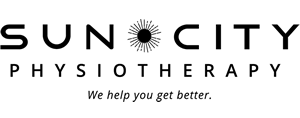Nutrition for Menopause
For most women, menopause begins between the ages of 45 and 55, and it is defined by the lack of a menstrual cycle for 12 months. This is a time to take care of yourself by making healthy lifestyle choices. Food and nutrition play significant roles in the health and quality of life of menopausal women. Eating well and being physically active can make this midlife transition easier.
Menopausal symptoms vary with every person. Some go through menopause with no real symptoms. However, common symptoms include hot flashes, night sweats, weight gain – especially around the mid-section, sleep disturbances and mood changes. These symptoms result from changes in hormones, most significantly changes in estrogen and testosterone. Nutrition can play a strong role in preventing and managing changes in body composition.
Some other health concerns associated with menopause include osteoporosis and breast cancer, which are chronic diseases that are common to women. These conditions may occur throughout the lifespan and can affect both men and women. However, they predominantly affect menopausal women.
Dietary factors contributing to an increased risk of cancer are excess calorie intake, especially saturated fat intake, alcohol, and environmental chemicals consumed on or in foods, adult weight gain, and inadequate antioxidants and fibre.
Weight Gain with Menopause
Due to changes in hormone levels and the natural aging process, women in menopause typically lose muscle and gain fat mass, often in the belly area. Lifestyle is also a factor, and decreased physical activity is also common around this life stage. After menopause, weight gain may also increase the risk of certain health issues, like high cholesterol, high blood pressure and insulin resistance (a condition in which your body cannot use insulin correctly, which can lead to diabetes), as well as reduced self-esteem.
What Can I Do?
Plan for your body’s natural metabolic slowdown.
- Be physically active. Adults should do at least 30 minutes of moderate-intensity physical activity most days of the week. Being active doesn’t have to mean a trip to the gym. You can be active doing daily activities. Take the stairs, park further away from your destination and walk, garden, swim, or dance. Aim for strength-building activities at least twice per week. Not only will strength training help build back your lost muscle mass, but it also helps to slow mineral loss in your bones which may lead to osteoporosis. Most importantly, being active should be fun. Pick activities you enjoy and get moving with friends and family.
- Eat well. Foods such as vegetables, fruits, whole grains, calcium-rich products and lean protein foods contain the nutrients you need and should make up the majority of your meals and snacks. If you choose to drink alcohol, limit yourself to one drink a day on the days that alcohol is consumed. If you suffer from hot flashes, try cutting back on caffeine and spicy foods, which could trigger hot flashes in some people. Be mindful of your sodium intake and aim to cook most of your meals at home rather than eating out.
- Drink plenty of water. Water keeps you hydrated and may help manage hot flashes. It also helps move dietary fibre through the body, which is especially important if you’re working on increasing your fruit and vegetable intake.
If the changes from menopause are affecting your mood or self-esteem, remember this is a temporary state. Healthy eating and physical activity habits you put in place during menopause can help you manage symptoms and return to feeling great.
If you are looking for support to help manage symptoms of menopause, seeing a Registered Dietitian may be beneficial. Dietitians can help you manage weight gain, loss of muscle tissue, sensory and gastrointestinal changes associated with aging (e.g- constipation, diverticulosis), and assess your nutrient intake to help correct micronutrient deficiencies associated with menopause.

Madison Wood is a Registered Dietitian dedicated to providing compassionate, individualized nutrition care for the past 7 years.
She holds a BSc with Honours Specialization in Foods and Nutrition from Western University in London, Ontario and completed her comprehensive post-graduate dietetic internship at the Northern Ontario School of Medicine.
When Madison’s not helping clients achieve their nutrition goals, you can find her outside enjoying the beautiful Okanagan either hiking, mountain biking, or improving her sailing skills.
Accepting virtual and in-person nutrition counselling sessions for adults and children.
